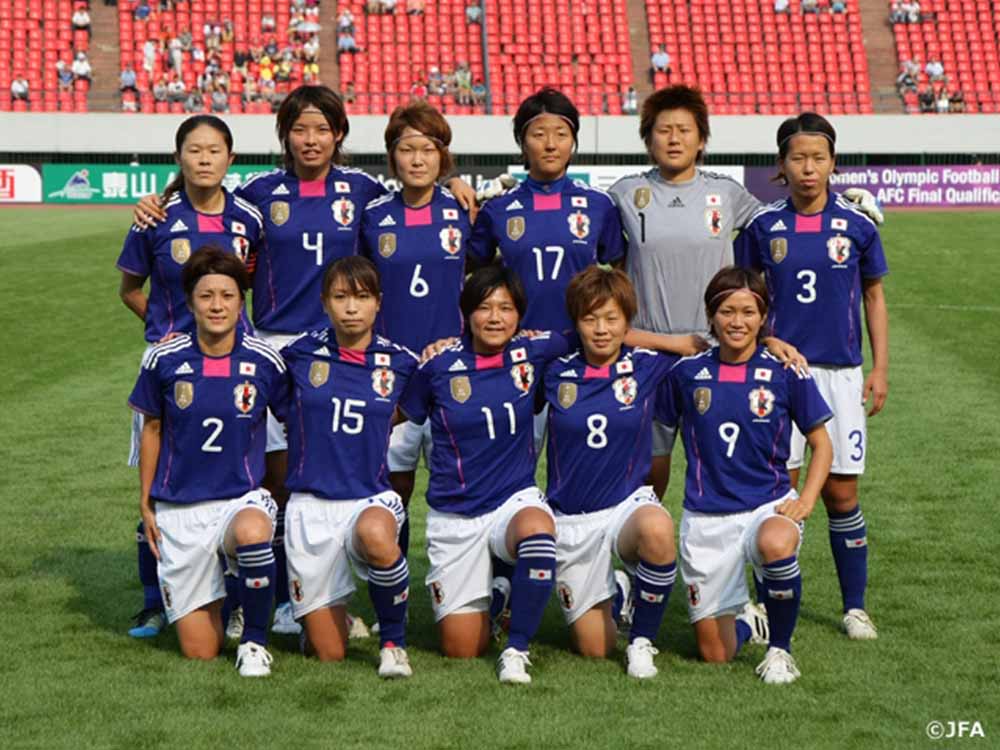なでしこジャパン (Nadeshiko Japan) in 2011: Triumph and Inspiration
なでしこジャパン, known as Nadeshiko Japan, refers to the Japanese women’s national football team. In 2011, this team achieved historic success, capturing the hearts of fans around the world with their remarkable journey in the FIFA Women’s World Cup. This article explores the highlights of Nadeshiko Japan’s memorable year, from their triumph on the field to the impact they had on the sport and society.
FIFA Women’s World Cup 2011: A Historic Victory
The pinnacle of Nadeshiko Japan’s success in 2011 was undoubtedly their victory in the FIFA Women’s World Cup held in Germany. The team, led by coach Norio Sasaki, showcased exceptional skill, teamwork, and determination throughout the tournament.
In the final match against the United States, Japan faced a formidable opponent. The match ended in a 2-2 draw after extra time, with Homare Sawa, the team’s captain, scoring a crucial equalizer in the dying minutes. The subsequent penalty shootout saw Nadeshiko Japan emerge victorious with a 3-1 score, marking their first Women’s World Cup title and making them the first Asian team to claim this prestigious honor.
Homare Sawa’s Leadership and Golden Boot
Homare Sawa played a pivotal role in Nadeshiko Japan’s success in 2011. Beyond her crucial goals, including the equalizer in the final, Sawa’s leadership and exemplary performance earned her the Golden Boot as the tournament’s top scorer and the Golden Ball as the best player. Her contributions on and off the field made her a national hero and an inspiration for aspiring footballers, particularly young girls, in Japan.
Impact on Women’s Football in Japan
Nadeshiko Japan’s victory in the FIFA Women’s World Cup had a profound impact on the landscape of women’s football in Japan. The team’s success inspired a surge in interest and participation in women’s football across the country. Young girls who once had limited visibility and opportunities in the sport found new inspiration in the achievements of Nadeshiko Japan, fueling the growth of women’s football at various levels.
The triumph also brought attention to the broader issue of gender equality in sports, sparking discussions about increased support and investment in women’s football. The success of Nadeshiko Japan became a catalyst for positive change, with heightened recognition and respect for women athletes in Japan.
Cultural Significance and Legacy
Nadeshiko Japan’s 2011 victory went beyond sporting achievements; it became a symbol of resilience and unity, resonating deeply with the Japanese people. The term “nadeshiko” itself refers to a traditional Japanese concept of an idealized and strong yet elegant woman. The team embodied these qualities, capturing the spirit of the nation in the aftermath of the devastating earthquake and tsunami that struck Japan earlier in the year.
The legacy of Nadeshiko Japan’s success in 2011 extends far beyond the football field. It serves as a source of national pride and a testament to the power of sport in uplifting spirits during challenging times. The team’s achievements continue to inspire generations of athletes and fans, leaving an indelible mark on the history of Japanese women’s football.
In conclusion, なでしこジャパン (Nadeshiko Japan) in 2011 stands as a beacon of triumph, resilience, and inspiration. Their historic victory in the FIFA Women’s World Cup not only transformed the landscape of women’s football in Japan but also symbolized the strength of the nation in the face of adversity. Nadeshiko Japan’s remarkable journey in 2011 remains a cherished chapter in the history of sports and a testament to the unifying power of athletic achievement.











